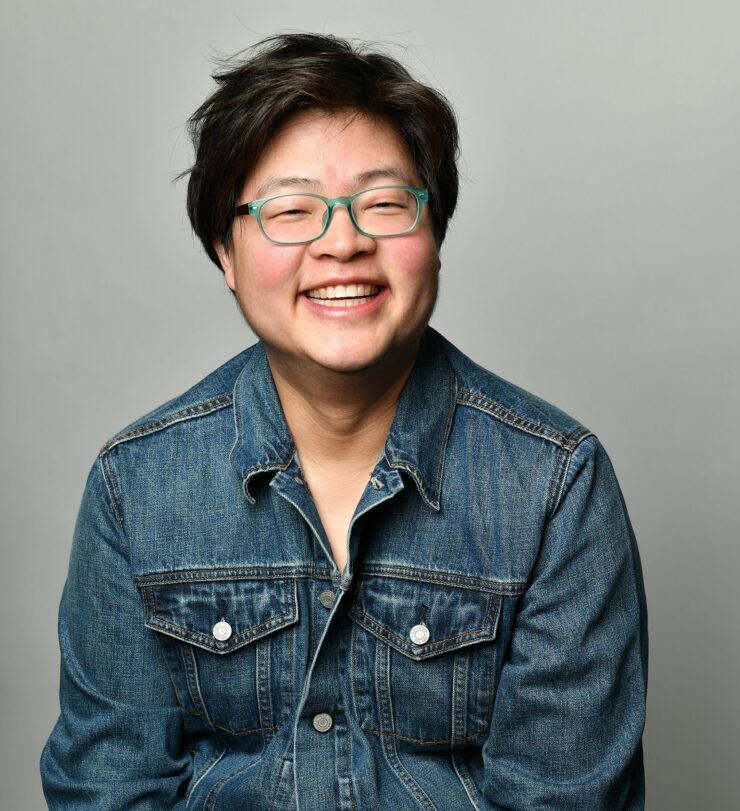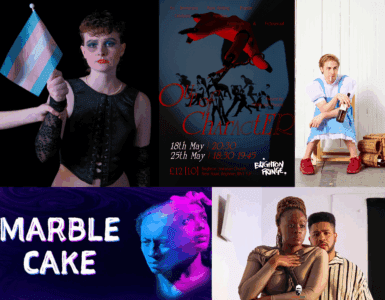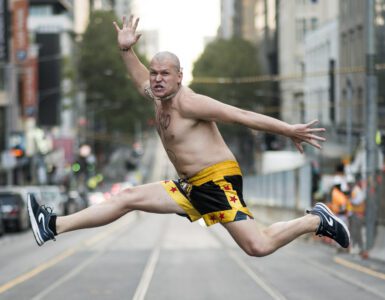Taiwan via Great Britain arrives at Prague Fringe tomorrow, as Taiwanese-born, UK-based comedian Kuan-wen Huang offers up his show Ilha Formosa to the punters of Charles Bridge Comedy Club. Kuan-wen is aiming to bring the lighter side to cultural difference, exploring his homeland against the backdrop of Taiwan’s long history of shifting identities and migration. We caught up with Kuan-wen for a pixelated pilsner ahead of his imminent arrival in the Czech capital, to talk all things identity, islands and IPAs.
Catch Kuan-wen Huang: Ilha Formosa at Charles Bridge Comedy Club between May 23rd and 26th (times vary by date). Tickets are available through the Prague Fringe Box Office.
Jake: Hi Kuan-wen, your show is all about Taiwan and you trading your life there for life in the UK – tell us about your relationship to both places and how it’s been making comedy from that.
Kuan-wen: I’ve lived in the United Kingdom for over 15 years so both London and Taipei (Taiwan’s capital, my home city) both feel like home. Taipei is a rather nice city to live in except for the incredibly hot and humid weather. Also, for some they may think of a looming military threat from China. But it is quite too small for me and a bit too suffocating because my mum lives there. I basically left Taiwan to keep a distance from my mum, a quite typical tiger mum who still does not approve of my career choice of comedy, to live the life I prefer.
I really like the quirky energy and metropolitan nature of London, where people just mind their own business and leave you be. English food may be a bit bland, but London has everything. The cantonese roast ducks in London actually taste better than in Taipei. Although when I see litter on the street, people putting their feet up on buses and when I get stuck with football fans in the train doing football chants or when I get racially attacked in my local hood, it does make me miss my home in East Asia.
Jake: You say that being Taiwanese symbolises generations of migration and shifting identities – tell us a little about your relationship with identity and how it relates to that symbolism.
Kuan-wen: Taiwan has a rather complex history but it is rarely known by western audiences because my island is not considered significant enough. It was incorporated by some Chinese dynasties rather late. Before that, Taiwan was discovered by the Portuguese in the 16th century and had been colonised by the Dutch, Spanish. It was later conquered by an exiled force from China until it was finally taken over by China, but Japan colonised it again for 50 years until the end of the second world war. My show covers a general version of this with jokes.
My grandma for example spoke fluent Japanese and Taiwanese but not a word of Mandarin. She would consider herself to be Japanese when she was young and Taiwanese. My parents grew up under the government which lost the war to communists and retreated to Taiwan. They speak Taiwanese and Mandarin both fluently and would consider themselves Taiwanese as well as Chinese.
When I grew up, Taiwanese was banned by the government like how Welsh was treated here in the UK. I speak rather poor Taiwanese with a strong Mandarin accent. But I am young enough to experience the democratisation of Taiwan so like most Taiwanese people these days, I see myself as Taiwanese only, but I do acknowledge our cultural heritage derives from China.
Jake: Now that we’re gearing up for Prague Fringe, what are you most excited for?
Kuan-wen: Czech beer! Also, whether the local Czech audience can relate to my mixed feeling towards China as a powerful neighbour which is quite often a bully to my country, as they have had similar experiences with Russia during the Soviet era (in particular the Prague Spring). In the context of Russian invasion of Ukraine, do the Czech audience feel as strongly as the UK media portray Poland for example.
Jake: Given the themes of Binge Fringe, if your show was a beverage of any kind (alcoholic, non-alcoholic – be as creative as you like!), what would it be and why?
Kuan-wen: The beverage will obviously be Taiwanese Bubble Tea. Actually I need not have to say Taiwanese, because the whole idea of bubble tea was invented in Taiwan, although quite often at a Bubble tea shop you are more likely to be served by Chinese people even if the brand is Taiwanese. In terms of metaphors, I’d like to think my show is pretty gag-packed like the bubbles, some of them invite the audience to think just like how chewy some bubbles are.
Hear the latest from Marginalised Voices from Fringes across the World
Subscribe to our Email Newsletter so we can send you insightful updates about unheard creative voices working to platform powerful stories. You'll be the first to hear about our content and how to apply to have shows you're working on reviewed.
Powered by EmailOctopus









